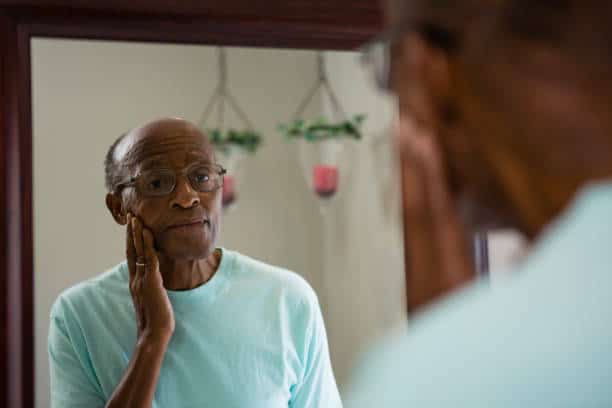According to experts, people with dementia are afraid of mirrors because they don’t realise they are looking at a reflection of themselves. They don’t know who they’re looking at and believe a stranger has just come nearby.
They may become so bewildered and upset from being surprised by this “intruder” that they may behave unreasonably. Your efforts to reassure or calm them down may be met with resistance.
Another factor in some dementia-afflicted elders’ refusal to take a bath or agitation in the bathroom could be a fear of mirrors. Because “that stranger” is usually around for these private actions, they might be terrified.
10 Tips for issues brought on by mirrors and dementia
- Remove any ornamental mirrors from the house and any extra mirrors, such as the ones in their room. If they are difficult to remove, continue reading for advice on how to conceal them.
- Before sundown, draw all window coverings.
- Full-length mirrors should be turned to face the wall and only be turned right-side out when necessary. Keep the mirror in a closet or behind an open door to make the mirror even less noticeable.
- Wall-mounted mirrors can be covered with a towel or a sizable piece of cloth.
- To make a mirror look like a window, attach sticky pleated fabric blinds (like these) to the top of the mirror.
- Use a poster to cover a mirror; calming nature images are good.
- With special adhesive window film, you can turn a mirror into pretty stained glass art; the flowers and patterns are lovely.
- Mirrored medicine cabinet doors should be taken out or covered.
- Self-adhesive contact paper with a calming colour and simple pattern should be used to cover huge mirrors (like mirrored closet doors). Try plain light blue or straightforward white wood panels for uncomplicated designs.
- Install a curtain rod above the mirror (such as this ornamental one) and hang drapes to conceal the mirror like a window. Anytime you need to use the mirror, simply open the drapes. Or, for a lighter appearance that still manages to obscure reflections, use semi-sheer drapes.
If you need help caring for a loved one with dementia or Alzheimer’s feel free to contact us.

